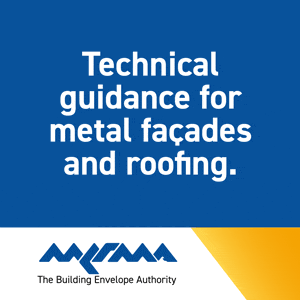New EPDs provide clear sustainability data
- Specify & Build
- Jan 11, 2024
- 2 min read
Environmental Product Declarations help specifiers fully understand the sustainability benefits of different construction products. Glidevale Protect has launched new EPDs for three of its ranges.
Building materials specialist Glidevale Protect has published third-party, independently verified Environmental Product Declarations (EPDs) for three of its construction wall membranes - Protect TF200 Thermo, Protect VC Foil Ultra and Protect TF200. These have been introduced to assist specifiers by providing clear sustainability and life cycle assessment data.
Detailed EPDs help specifiers to understand a product’s sustainability credentials when working to more stringent regulations such as Building Regulations Part L as well as whole building environmental assessment standards like BREEAM. EPDs quantifiably demonstrate the environmental impact of a product and data is independently verified and certified in line with internationally recognised standards, focused on the product’s whole life cycle.
By featuring key environment impact data including global warming potential (GWP) calculations as well as total energy and water use, the EPDs form a transparent analysis of each product’s carbon footprint to give full reassurance in specification.
Created by One Click LCA and verified by the EPD Hub in accordance with EN 15804+A2 & ISO 14025 / ISO 21930, Glidevale’s product and factory specific EPDs do not contain average calculations and have been assessed cradle to gate with modules A1-A3, C1-C4 and D, with the life cycle analysis (LCA) published in accordance with the reference standards ISO 14040/14044.
In-house initiatives boost efficiency
Glidevale Protect is also working on ways to improve the sustainability and operational efficiency of its business, with key projects underway including progressing towards accreditation to the ISO 50001 energy management standard and putting new systems in place to track recycling levels and energy consumption across its UK based manufacturing facilities. The business is also looking at how it can improve the environmental footprint of its packaging by reducing its plastic content.
Glidevale Protect uses an in-house conveyor to deliver closed-loop recycling. This involves granulating waste ABS offcuts from its tile ventilation production line which are then compounded, moulded, and recycled back into products by local suppliers based within five miles of the factory.
The recyclate is then used within Glidevale Protect’s tile ventilation hoods. For rolled goods, the company is also collaborating with a recycling partner who collects reflective membrane waste from Glidevale Protect’s UK factories and recycles the material. A partnership is also underway with a local company to collect all used pallets and waste timber from the factory site for recycling.
As part of this commitment to improving its environmental impact, the company has also installed EV chargers at both its UK factories and all new company cars will be either electric or hybrid vehicles.
Ben Gerry, Glidevale Protect’s Managing Director says: “Our commitment to supporting sustainable construction isn’t limited to our product range and, as a UK manufacturer, we take our environmental responsibilities very seriously.”
Sustainability Lead John Mellor adds: “Our current activities are being implemented from the front line with both internal and external customer drivers and we are not paying lip service or greenwashing with regards to trying to reduce our environmental impact across our factory sites. Our key stakeholders within the business engage in the monthly meetings to help push through positive changes and where necessary we are consulting with industry experts who can assist us in our sustainability roadmap.”
.png)



























































.png)

